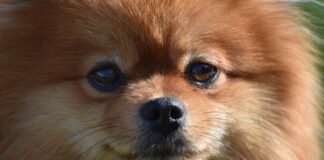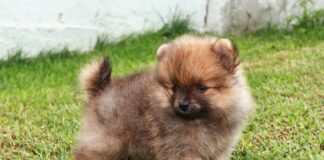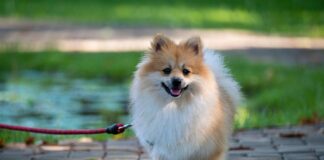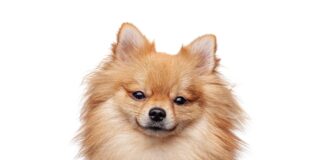Parrots are intelligent, social creatures that require a varied and balanced diet to stay healthy, energetic, and happy. While wild parrots have access to a wide range of foods in their natural habitats, pet parrots depend on their owners to provide a well-rounded diet. Feeding a parrot the right foods is essential not only for their physical health but also for their mental well-being. This guide explores what to feed your parrot, how to ensure they’re getting the proper nutrition, and the types of foods you should avoid.

Understanding Parrot Nutrition
Parrots, like all animals, have specific nutritional requirements that must be met to support their health. These requirements can vary depending on the species, age, size, and activity level of the bird. In general, parrots require a combination of proteins, fats, carbohydrates, vitamins, and minerals to maintain good health and energy.
Their diet should be rich in whole foods, such as fruits, vegetables, nuts, seeds, and specially formulated pelleted food. The key is to create a balanced diet that mimics the variety of foods parrots would typically eat in the wild. This includes providing enough diversity to prevent boredom, stimulate foraging behavior, and meet their nutritional needs.
The Basics of a Balanced Parrot Diet
A balanced parrot diet should consist of:
- Pellets: High-quality pellets are often recommended as the primary food source for most parrots. These pellets are nutritionally complete, meaning they contain all the essential vitamins, minerals, and other nutrients your bird needs. Pellets are typically formulated to ensure a balanced diet and are available in different sizes and flavors depending on the size and species of your parrot.
- Fresh Fruits and Vegetables: Fresh produce should make up a significant portion of your parrot’s diet. Fruits and vegetables provide essential vitamins and minerals that pellets alone may not supply. These include vitamin A, vitamin C, potassium, and antioxidants, which are crucial for their immune system, eye health, and overall well-being.
- Seeds and Nuts: While seeds and nuts are an important part of a parrot’s diet, they should be given in moderation, as they are high in fats. Too many seeds can lead to obesity and health issues. A small amount of nuts and seeds can be given as treats or as part of their regular diet.
- Proteins: Parrots, like all animals, need protein for tissue growth, maintenance, and repair. While they can get some protein from pellets, seeds, and nuts, it’s also important to provide additional protein sources such as cooked eggs, legumes, or certain grains.
- Clean Water: Fresh water is essential for any pet, including parrots. Ensure your parrot has constant access to clean, fresh water. It is essential to change the water daily to avoid the growth of bacteria and keep your bird hydrated.
Parrot Diet Breakdown by Food Type
1. Pellets: The Core of a Parrot’s Diet
Pelleted food is the most convenient and nutritionally complete food for parrots. It is designed to be a balanced meal, providing all the essential nutrients in every bite. Pellets are made from ground-up grains, vegetables, and other ingredients, ensuring that your parrot gets everything it needs in one package.
Pellets come in various forms, including round, extruded, and crumbled varieties. They can be color-coated to make them more visually appealing to your parrot, but be cautious with artificially colored pellets, as they may contain additives that are not beneficial.
The proportion of pellets in your parrot’s diet should be high, typically about 70–80%. The remainder of their diet should consist of fresh produce, seeds, and occasional treats. Always choose high-quality pellets that are free of artificial preservatives, colors, and sweeteners.
2. Fruits and Vegetables: Essential for a Balanced Diet
Fruits and vegetables are an important part of your parrot’s diet and provide essential vitamins, minerals, and fiber. They also help to maintain good digestion and overall health. When offering fruits and vegetables, it is important to choose fresh, pesticide-free produce. Organic options are the best, as they are free from harmful chemicals.
Some great fruits for parrots include:
- Apples (remove seeds)
- Bananas
- Oranges
- Berries (strawberries, blueberries, raspberries)
- Grapes
- Mangoes
- Papaya
- Pomegranate
For vegetables, consider offering:
- Carrots
- Sweet potatoes
- Kale
- Spinach (in moderation)
- Broccoli
- Zucchini
- Peas
- Bell peppers
It’s important to offer a variety of produce to ensure your parrot is getting all the necessary nutrients. Fresh produce can make up around 10–20% of their diet.
3. Nuts and Seeds: Treats, But in Moderation
While seeds and nuts are a favorite among parrots, they are high in fat and calories. Overfeeding them can lead to obesity, heart disease, and other health problems. However, these foods are rich in protein, healthy fats, and vitamins, so they can be included in your parrot’s diet as treats or in smaller quantities.
Some healthy nut and seed options include:
- Almonds
- Walnuts
- Brazil nuts
- Sunflower seeds (unsalted)
- Pumpkin seeds
- Flax seeds
Always offer nuts in moderation and be cautious about the salt content. Unsalted nuts are always the best choice. Parrots can also benefit from crushed or shelled nuts, as they provide extra stimulation and encourage foraging.
4. Protein Sources: Supplementing with Animal and Plant-Based Proteins
Parrots require protein for proper growth, feather development, and overall health. While pelleted food provides some protein, additional sources should be included, especially for growing birds, breeding pairs, or those in need of weight gain.
Protein-rich foods for parrots include:
- Cooked eggs (scrambled or boiled)
- Legumes (lentils, chickpeas, beans)
- Cooked chicken (in small amounts)
- Tofu
- Quinoa
- Sprouted seeds
Providing additional protein through these food sources can help ensure your parrot has the necessary nutrients for muscle growth and repair.
5. Avoid Harmful Foods
While there are many healthy foods you can feed your parrot, it is also important to know which foods to avoid. Certain foods are toxic to parrots and can cause serious health issues. These include:
- Chocolate: Chocolate contains theobromine, which is toxic to parrots and can cause vomiting, diarrhea, and even death.
- Avocados: Avocados contain a toxin called persin, which can cause respiratory distress, heart failure, and death.
- Onions and Garlic: These can cause digestive upset and lead to more serious conditions like hemolytic anemia.
- Caffeine: Caffeine, found in coffee, tea, and other caffeinated drinks, can lead to increased heart rate, hyperactivity, and seizures in parrots.
- Alcohol: Alcohol is highly toxic to parrots and can cause severe liver damage, respiratory failure, or death.
- Pit seeds and apple cores: Seeds and cores from fruits like apples, cherries, and peaches contain cyanide compounds, which are toxic to birds.
Make sure that you only feed your parrot safe, non-toxic foods and always double-check the safety of unfamiliar items.
Creating a Feeding Routine for Your Parrot
Establishing a regular feeding schedule helps ensure your parrot gets all the nutrients they need while maintaining a healthy weight. A consistent feeding routine also helps keep your bird in a good mental state by promoting a sense of stability and routine.
- Feed Fresh Food Daily: Offer fresh fruits and vegetables every day to provide variety and stimulate foraging behavior.
- Limit Treats: Treats should make up no more than 10% of your parrot’s daily intake. Be mindful of how many treats you give them, as they are often high in sugar or fat.
- Avoid Overfeeding: Parrots can become overweight if they eat too much. Monitor their weight regularly and adjust portions as needed.
Conclusion
Feeding your parrot a balanced and nutritious diet is essential to its health and well-being. By offering a mix of high-quality pellets, fresh fruits and vegetables, nuts and seeds in moderation, and protein-rich foods, you can ensure your bird is getting the nutrients it needs for a long, healthy life. Always be aware of the foods that are harmful to parrots and create a feeding schedule that works best for you and your pet.
With proper nutrition, your parrot will have the energy, strength, and mental stimulation to thrive, whether they are playing, talking, or bonding with you. Always remember to consult with an avian veterinarian to discuss your bird’s specific dietary needs and health concerns.




























